
Science at UM [S04-ep17]: Deciphering dolphin whistles
Published on: February 6 , 2025
This week on A l’UM la science, Loïc Lehnohff and Bastien Mérigot, researchers at...
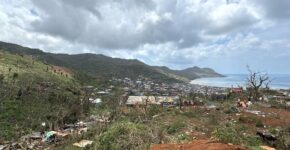
Mayotte diary: life in France's largest slum in the aftermath of the cyclone
Published on: February 5 , 2025
**Fahad Idaroussi Tsimanda, geographer, specialist in "informal" neighborhoods in...

Mayotte logbook: a strange sense of carefreeness, just hours before disaster struck
Published on: February 5 , 2025
**As the severity of Cyclone Chido was announced, the people of Mayotte were ill-prepared for...

Mayotte logbook: two months after Chido, the plight of Comorian migrants stigmatized by politicians
Published on: February 5 , 2025
Two months after Cyclone Chido struck, Fahad Idaroussi Tsimanda, geographer...

[LUM#22] “Natacha, age 13: Can I use ChatGPT to do my homework?”
Published on: February 4 , 2025
Sunday evening at 9 p.m., Natacha realizes she forgot to write the argumentative paragraph...

Science at UM [S04-ep16]: The hidden plans of dopamine
Published on: January 30 , 2025
This week in Science at UM, Jérémie Naudé, a researcher at the IGF, reveals...

[LUM#22] Generative AI for fractures
Published on: January 28 , 2025
What if the widespread use of generative AI systems (siag) in society...

Qonto, Monabanq, HelloBank... will the rise of "neobanks" go too far?
Published on: January 28 , 2025
In recent years, new financial players have emerged. Taking advantage of the...
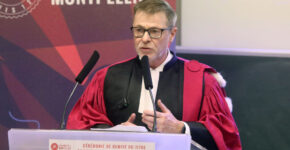
Armand Soldera: a man of conviction

Better understanding changes in commerce
Published on: January 27 , 2025
Faced with e-commerce, traditional stores are not doomed. To continue...
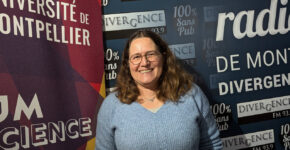
Science at UM [S04-ep15]: A brain with bite
Published on: January 23 , 2025
This week on A l’UM la science, Allowen Evin, researcher at the Institute of Sciences of...

[LUM#22] AI's energy gluttony: a blessing in disguise?
Published on: January 21 , 2025
The deployment of AI is contributing to the rapid growth of the ecological footprint of...
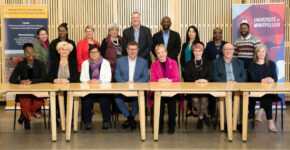
Call for applications | Collaborative Doctoral Platform Nutrition – Food Systems (FOODS)
Published on: January 21 , 2025
The Collaborative Doctoral Platform on Nutrition and Food Systems (FOODS) developed...

Trump 2.0: the rise to power of an "anti-elite" elite
Published on: January 19 , 2025
Donald Trump brings with him a new cohort of political figures. If one...
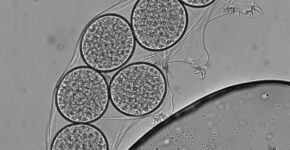
Tardigrades can withstand (almost) anything, thanks to genes from extinct species
Published on: January 19 , 2025
Tardigrades are small but tough: X-rays, extreme temperatures, pressure...

Science at UM [S04-ep14]: Heart and lungs put to the test in ultra-triathlons
Published on: January 16 , 2025
This week on A l’UM la science, Christophe Hedon, cardiologist at the University Hospital, and Olivier Cazorla,...